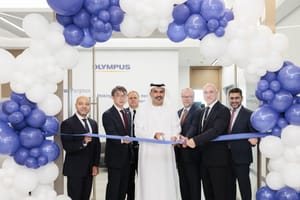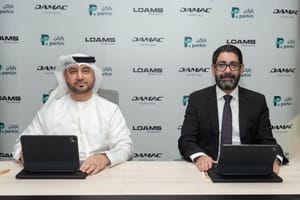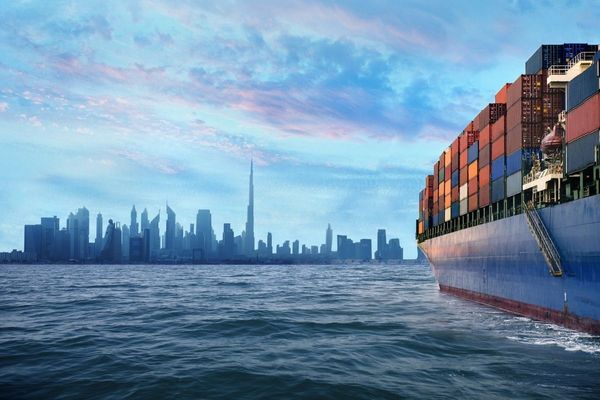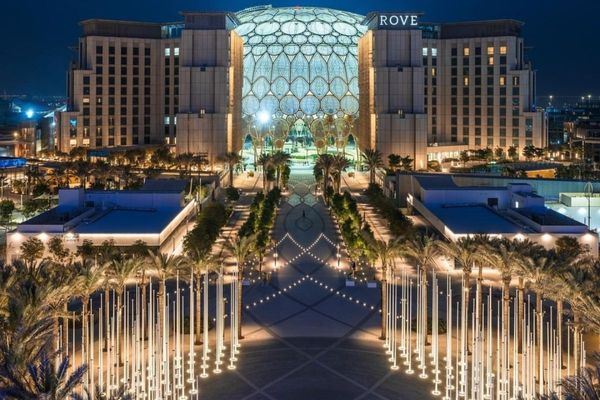Dubai International Financial Centre (DIFC) has delivered strong growth in the first half of 2021, with 492 new company registrations, an impressive 59% increase from the same period in 2020.
The performance, which has enabled DIFC to achieve its ‘2024 Strategy’ growth targets three years ahead of schedule, reaffirms its global status as a financial and innovation centre of choice.
The total number of active registered companies has reached 3,292, an increase of 27% year-on-year (H1 2020: 2,584). This growth represents a tripling in size since 2014 when the ‘2024 Strategy’ was initiated and reflects DIFC’s significant efforts to build on its MEASA market-leading status by continually enhancing its operating environment, legal and regulatory frameworks, innovation offering and depth of its ecosystem. Overall, DIFC is now home to 1,025 financial and innovation related companies in total, up 25% from last year (H1 2020: 820).
DIFC made strong progress in H1 on realising its vision to drive the future of finance and nurture innovation. The recently launched Innovation Hub has already reached full capacity, with over 140 new start-ups and FinTechs joining this market-leading innovation ecosystem during the first six months of this year. These include companies at all stages of development, from early-stage start-ups such as Rentd Technology Ltd, Crayfish Labs Technologies Ltd, PALFusion Technology Holdings and StashAway Management (DIFC) Ltd, growth stage ventures including Ebury and Adyen, unicorns including as SoFi (UAE) Ltd and established big tech players like Amazon and Huawei.
His Highness Sheikh Maktoum bin Mohammed bin Rashid Al Maktoum, Deputy Ruler of Dubai and President of the DIFC, said DIFC’s exceptional accomplishments in the first half of 2021 demonstrates the Centre’s commitment to achieving higher levels of performance and ensuring leadership in the financial sector both regionally and globally.
“The announcement of the H1 2021 results coincides with the launch of 50 new initiatives and projects in the UAE based on the ‘Principles of the 50’ document, which is set to serve as a strategic roadmap for the country's new era of political, economic and social development. These ambitious steps taken by the UAE will pave the way for continued growth within various vital sectors, including the financial sector - further accelerating Dubai’s reputation as a leading global financial centre and raising the trust of our stakeholders and partners,”
His Excellency Essa Kazim, Governor of DIFC, added:
“DIFC has successfully built a global reputation as the leading financial centre in the MEASA region and the achievement of our ‘2024 Strategy’ target to triple in size three years ahead of schedule is testament to the appeal of our proposition. Our continued growth also reflects the success of our forward-thinking approach to focus on driving both the future of finance and technology and innovation more broadly, enabling DIFC to attract pioneering start-ups and best-in-class global institutions alike. DIFC will continue to build on our success to date to play a key role in accelerating not only our own growth but also the economic diversification of Dubai.”
Arif Amiri, Chief Executive Officer of DIFC Authority, said:
“The first half of 2021 has been a period of immense progress for DIFC in which we have realised our ‘2024 Strategy’ growth targets three years early, reaching 3,292 active registered companies at the end of H1. Our reputation as a leading global centre for finance, FinTech and innovation has contributed to our ability to attract new entities to our ecosystem, alongside our continued efforts to enhance our operating environment, regulatory frameworks and innovation initiatives. As we look ahead to our next stage of growth, DIFC remains committed to working together with our partners and clients to lead the way in delivering the future of finance and the tremendous growth opportunities that this offers to us all.”
Driving the Future of Finance
The DIFC Innovation Hub is the region’s most comprehensive and largest innovation proposition dedicated to the future of finance. Following its launch, the Innovation Hub has reached full capacity with tenants including early to growth-stage start-ups such as YAP, Beehive, Tabby, Xpence, Stake, Rain and Bayzat as well as Thunderbird School of Global Management, part of Arizona State University, and established tech companies including Ebury, Amazon and Huawei. To meet demand, DIFC has announced a fourfold expansion to the Hub in the next two years, which will see it grow to more than 315,000 sq.ft. in order to accommodate up to 1,000 businesses.
In line with the vision to be a global centre for innovation, the DIFC Innovation Hub also incorporates the FinTech Hive which runs a number of key initiatives designed to identify and support world-class new FinTech and technology start-ups. This year, its FinTech Accelerator and AccelerateHer programmes have expanded to accommodate more global start-ups and entrepreneurs. Meanwhile, in February, the third cycle of Startup bootcamp’s FinTech Dubai programme successfully concluded. To date, 100 start-ups have taken part in FinTech Hive based programmes, rigorously selected from over 2,400 applications. The start-ups have successfully raised USD 100 million funds.
Fostering the workforce of the Future
DIFC continues to support the development of a workforce with the right skills for the future. This led to the unveiling of the Future Campus in February - the fourth DIFC Academy initiative, alongside those dedicated to Finance, Law and Management. With capacity for up to 25,000 students a year, it offers programmes focused on acquiring the necessary skills and knowledge to develop a sustainable and innovative future for the global finance industry. The Future Campus is being delivered in partnership with EdAid, the London-based FinTech platform dedicated to increasing access to higher education.
The Centre’s innovation offering has furthermore attracted leading educational institutions such as Thunderbird School of Global Management from Arizona State University to establish a Global Innovation Centre at DIFC.
Building innovation partnerships
In January, DIFC and the Dubai Financial Services Authority (DFSA) also signed a memorandum of understanding (MOU) with the UAE Centre for the Fourth Industrial Revolution, a joint initiative between the Dubai Future Foundation and the World Economic Forum. The MOU includes establishing a controlled regulatory forum in the UAE to test digital assets using blockchain, with a view to developing licensing of companies. In May, DIFC signed a partnership with the MENA FinTech Association (MFTA) to advance FinTech developments in the region such as Open Banking, RegTech, Payments and Digital Assets. DIFC, DFSA and MFTA have launched the DIFC Innovation Panel, creating a forum to engage with FinTech and Innovation company founders, enablers and thought leaders.
Ensuring legal and regulatory best practices
DIFC continues to review and update its laws to ensure they remain at the forefront of international best practice. DIFC’s leading legal and regulatory framework is a key attraction for international organisations seeking to do business in the region, as well as using it as a bridge into other markets.
During the first half, DIFC launched several consultations including proposals to amend the Employment Law, Data Protection Law and Insolvency Regulations. The Centre also issued a consultation paper proposing new Intellectual Property Regulations under the Intellectual Property Law No. 4 of 2019. The Proposed Regulations will facilitate the administration and enforcement of the DIFC IP Law.
Importantly, the period saw DIFC’s Companies Law used for the first time to complete a cross-border merger under a complex ‘reverse triangular merger’ structure. Setting a strong precedent for the future, United Arab Chemical Carriers Limited (UACC) merged with United Overseas Group Limited (UOG) with the backing of a newly formed investor consortium. DIFC’s merger provisions are more user-friendly than those under the UK regime and crucially enable both public and private companies established in DIFC to merge with other companies, including those established in jurisdictions outside the Centre.
In May 2021, His Highness Sheikh Mohammed bin Rashid Al Maktoum issued Law No. (5) of 2021 relating to Dubai International Financial Centre (DIFC), which replaced the original founding law of DIFC, Law No. (9) of 2004 on Dubai International Financial Centre. The new Law underpins Dubai’s position as a global financial and business hub, promoting the values of efficiency, transparency, and integrity. It reaffirms the requirements for the highest governance and accountability principles, as well as the Centre’s operational, financial and administrative independence. Furthermore, it expands DIFC’s strategic objectives to include advancing sustainable economic growth for Dubai, developing, and diversifying its economy by increasing the GDP contribution of the financial services sector, promoting investment into Dubai and attracting regional and international entities to establish themselves in DIFC as their principal place of business.
Building a sustainable finance hub
DIFC is working with members of the Dubai Sustainable Finance Working Group to accelerate its position as the region’s most sustainable finance hub. In H1, DIFC and the Group shone a spotlight on Environmental, Social and Governance (ESG) factors in business through the launch of two guides.
The first half also saw DIFC Academy and Candriam Academy introduce the world’s first free-to-access accredited training platform for sustainable and responsible investing. Candriam is a recognised pioneer and leader in sustainable investing, integrating ESG factors across all its investment processes and managing more than USD 50 billion in pure ESG funds and mandates.
Providing a premium lifestyle destination
DIFC is building its offering as part of its overall vision to connect business, arts, culture and lifestyle. Combining a significant business community with a vibrant leisure destination, DIFC offers outstanding dining and retail opportunities, three five-star hotels and seven art galleries.
In the first half, DIFC hosted the 14th edition of Art Dubai, one of the first major physical art fairs to take place globally since the start of the COVID-19 pandemic. The fair saw 50 galleries from 31 countries showcase diverse artworks, as well as introducing an innovative Remote Participation Programme to digitally connect participating galleries unable to travel in person to Dubai.
News Source: Government Of Dubai Media Office









